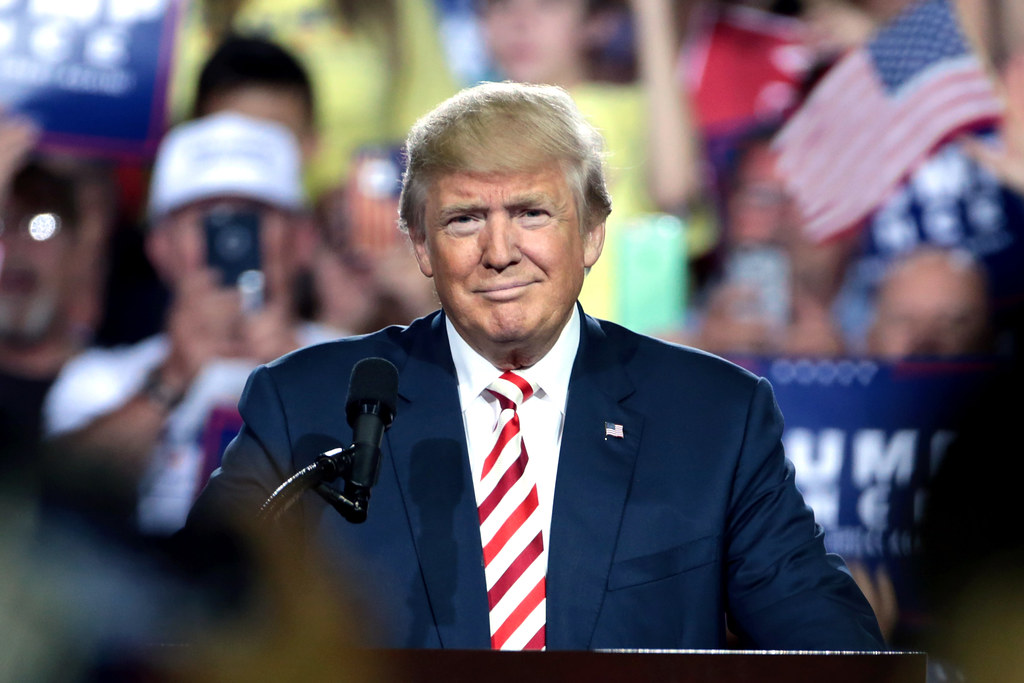 |
| Trump |
WASHINGTON: The US envoy to the European Union told a prosecution hearing Wednesday that he pursued President Donald Trump's requests in looking for a "compensation" bargain for Ukraine to test a political adversary in return for a White House summit.
In hazardous broadcast declaration, Gordon Sondland - whose appearance was being observed particularly intently as he was a Trump partner - said he accepted the president was squeezing Ukraine to examine his potential 2020 challenger Joe Biden.
"We pursued the president's requests," Sondland affirmed before the House Intelligence Committee.
He said that Trump constrained US ambassadors to work with his own attorney, previous New York city hall leader Rudy Giuliani.
Sondland said that Trump held off on offering a summit with Ukraine's new president, Volodymyr Zelensky, as Giuliani requested that Kiev freely declare it was exploring a gas organization on which previous VP Biden's child Hunter held a paid board position.
Giuliani additionally needed Zelensky to explore a generally defamed paranoid notion that Ukraine planted proof on a server of Biden's Democratic Party to show that Russia meddled in the 2016 political race.
"Mr Giuliani's solicitations were a compensation for organizing a White House visit for President Zelensky," Sondland said.
Sondland said he "never got a reasonable answer" on why the White House suspended $391 million in security help to Ukraine, which is doing combating Russian-supported separatists, however that he "came to accept" it was likewise attached to the examinations looked for by Trump.
"I was resolvedly contradicted to any suspension of help, as the Ukrainians required those assets to battle against Russian animosity," he said.
"Without any tenable clarification for the suspension of help, I later came to accept that the resumption of security help would not happen until there was an open explanation from Ukraine focusing on the examinations of the 2016 political race and Burisma, as Mr Giuliani had requested," he said.
High ranking representatives knew about strategy
Sondland was showing up in the second seven day stretch of broadcast hearings in which Democrats are trying to set up whether Trump mishandled the intensity of his office by utilizing military guide and a White House meeting to remove a responsibility from Zelensky to test the Bidens.
The House examination could possibly wrap up this week, with proof at that point sent to the House Judiciary Committee to draw up articles of denunciation.
Trump's prosecution by the Democratic-controlled House would put Trump on preliminary in the Senate, where a Republican greater part could shield him from evacuation.
Sondland said that he and two individual US authorities, Energy Secretary Rick Perry and Ukraine Special Envoy Kurt Volker had "worked with Mr Rudy Giuliani on Ukraine matters at the express course of the President of the United States."
"We would not like to work with Mr Giuliani. Basically, we were playing the hand we were managed," he said.
His declaration was probably going to heap crisp weight on Giuliani, the previous city hall leader of New York who had different business interests in Ukraine and who has would not affirm or hand over reports to the prosecution test notwithstanding a subpoena.
It could likewise undermine Republican endeavors to shield Trump by proposing Sondland and Giuliani had sought after their own endeavors in Ukraine outside formal strategic channels.
Sondland denied that the trio, named the "three amigos," were engaged with "some sporadic or rebel discretion" that withdrew from White House approach.
He said high ranking representatives in the White House and State Department, including Secretary of State Mike Pompeo and afterward National Security Advisor John Bolton, were altogether educated about the Ukraine endeavors.
Sondland included that, from the start when Zelensky got down to business in April, Trump was "suspicious" of building an association with Kiev.
"He communicated worries that the Ukrainian government was not genuine about change and he even referenced that Ukraine attempted to bring him down in the last political decision."


0 Comments